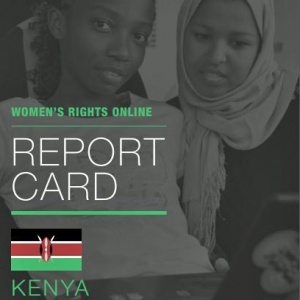Digital Gender Scorecard for ICT’s in Kenya
Kenya scores only 30 percent
The Kenya chapter of IAWRT has hosted an event in Nairobi, launching the digital gender scorecard for women’s access to communications technologies in Kenya.
The launch of the digital gender gap audit scorecard for Kenya is part of the World Wide Web Foundation’s Women’s Right Online Initiative.
“survey research revealed extreme gender and poverty inequalities in digital empowerment across urban poor areas in 10 cities. Women were 50% less likely than men to be online, and 30-50% less likely to use the Internet for economic and political empowerment.”
At the IAWRT launch of the digital gender gap audit score card for Kenya the country’s score was overall 30 percent, with its worst deficits being internet access and women’s empowerment and digital skills and education.
The gathering included workshop for leaders and ICT industry stakeholders, with discussions aimed at identifying concrete steps to address the challenges and gaps in Kenya.
It aimed to promote understanding of the sustainable development goals on women and technology, and the need to include gender in ICT policy formulation.
Participants included government representatives in Communications and Technology portfolios, UN Women, the US Embassy, the Web Foundation, Internet Service Providers, curriculum developers, industry regulators, media and law enforcers.
The World Wide Web Foundation, established by the inventor of the world-wide web, Sir Tim Berners-Lee aims to enhance access openness and participation on the web.
Its women’s rights online international report and global overview includes ten countries,none of which are doing enough to ensure fair gender access to ICTs and to the benefits of technological change. It makes specific policy recommendation to reverse this scenario through steps such as reducing costs to connect, introducing digital literacy in schools, and expanding public access facilities.
The foundation provides a tool kit to research the gender gap.








